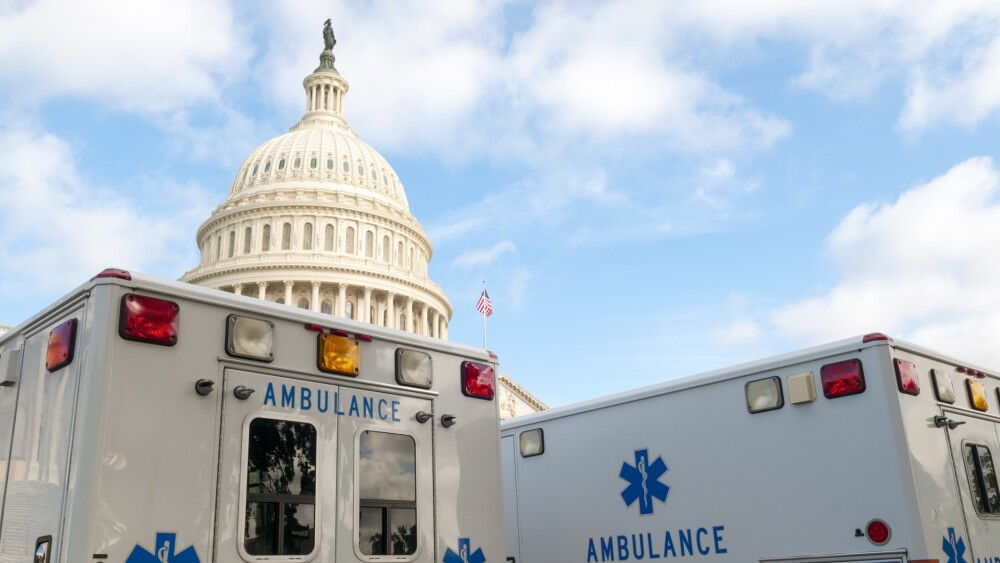WASHINGTON — A bipartisan bill introduced by Sens. Susan Collins (R-Maine) and Peter Welch (D-Vt.) would allow EMS providers to be reimbursed for treating Medicare patients on scene instead of transporting them to the hospital.
The Comprehensive Alternative Response to Emergencies (CARE) Act directs the Centers for Medicare & Medicaid Services to pilot a five-year “treat-in-place” model. The goal is to reduce unnecessary emergency room visits, strengthen local EMS response and ensure timely care for patients, according to a statement from Collins’ office.
| MORE: A hidden gem in the CARES Act that benefits ambulance services
The bill builds on a pandemic-era program that saved Medicare more than $500 per encounter. In Maine, about 35% of EMS calls end without a hospital transport, leaving agencies to absorb those costs. The CARE Act would change that by reimbursing on-scene care, according to Collins’ office.
“Having access to high-quality emergency medical services is essential for individuals in rural communities across Maine and the nation, yet in many areas these providers face serious staffing and financial challenges,” Senator Collins said. “This bipartisan bill would expand the treatment-in-place model for EMS services, reducing unnecessary emergency room visits, lowering costs and easing the strain on our state’s hospital and EMS workforces.”
The bill has gained broad support from national and local EMS groups, including the American Ambulance Association, Maine Ambulance Association, North East Mobile Health Services, the National Association of Emergency Medical Technicians, the International Association of Fire Chiefs, the National Rural Health Association, the National EMS Quality Alliance and numerous local agencies nationwide.
“We extend our heartfelt thanks to Senators Collins and Welch for their leadership in introducing the CARE Act,” American Ambulance Association president Jamie Pafford-Gresham said. “By acknowledging that ambulance service organizations provide critical prehospital medical care, not just transportation, this legislation helps ensure that our nation’s EMTs and paramedics are properly recognized and services are reimbursed for this care delivered every single day in communities across America.”
The National Association of Emergency Medical Technicians says treat-in-place would improve outcomes, cut Medicare costs, ease EMS workforce strain and help decompress crowded EDs.
North East Mobile Health Services adds that the bill builds on Maine projects where paramedics deliver high-quality care without hospital transports.
The International Association of Fire Chiefs backs the bipartisan measure as a commonsense step to support fire/EMS agencies, enhance patient care and reduce pressure on overburdened emergency departments.








